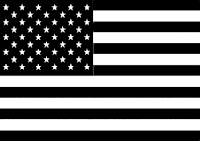land of liberty
 According to the Greeks liberty eats itself. That's Paul too - everything is permissible but not beneficial. There are definite ends to it, and, at the end of things, it's not pretty. It's usually not worth much at the start either, since liberty most often begins with war. For the Christian that war is within the soul, the wrestling match with God himself and his word. Then, he names you and grafts you into his family. It's a match that is ugly, insulting, and causes you to limp in humility and on toward grace... always toward grace.
According to the Greeks liberty eats itself. That's Paul too - everything is permissible but not beneficial. There are definite ends to it, and, at the end of things, it's not pretty. It's usually not worth much at the start either, since liberty most often begins with war. For the Christian that war is within the soul, the wrestling match with God himself and his word. Then, he names you and grafts you into his family. It's a match that is ugly, insulting, and causes you to limp in humility and on toward grace... always toward grace.
For secular society the war that births liberty is more problematic. It inflects violence on the other in order to keep what is yours or what you've come to define as such. In the end, the rivers run with blood, the countryside is full of strange fruit, and the natives are not restless because they're usually dead.
Liberty is not just distasteful; it's horrid when taken as the highest good, and, worse, if tolerance is a companion.
America is a problem. I don't take pride in America. As you know, it is said that we should boast in nothing save the cross of Jesus. I said this at a recent camping trip with my Vietnam vet father-in-law. It didn't go over well. (Believe me, I'm still learning.)
My point was simply that liberty is not the cause to achieve or the virtue to keep - at least not in the secular sense. If America is worth anything, its worth is found solely in God's working all things to his own bidding. That levels such pride in country. If America were gone tomorrow, our faith is built on nothing less than Jesus' blood, as the old hymn says. It is not dependent on a huge army that keeps enemies at bay. ("The weapons we fight with are not the weapons of the world." (2 Cor 10:4))
It's true that God has used pockets of peace to do his work. Jesus coming when he did meant there was peace. Forty years later would result in disaster as Titus took out Herod's Temple and forced Masada. Would Jesus had involved himself in such struggles had he come later? If we take the Gospels as a guide, he wouldn't seem that interested in a rebellion.
For example, Luke 13 is surprising. It begins: "There were some present at that time who told Jesus about the Galileans whose blood Pilate had mixed with their sacrifices." The incident is presumably one of Pilate killing people in the temple while making sacrifices. Jesus' response: "...unless you repent you too will all perish." Again with Peter's sword covered in ear blood, Jesus shouted, "No more of this... Am I leading a rebellion, that you come with swords and clubs?" (Luke 22:51-52)
The discussion with my father-in-law circled again and again around defense and I returned with a soft rebuttal that asked him to find the idea of defending one's property or waging war in the Gospels or in the New Testament.
There is none. We are told to love our neighbors and pray for those who persecute us. Nowhere does it indicate that we are to take out our neighbors because they wrecked our village or that we are to exterminate people to lay a claim on property. Rather, if someone wants your coat, give your shirt; if someone wants to travel one mile, go two.
It's interesting that Heaven is not modeled after democracy. A kingdom with a throne room and a king who demands homage is how Heaven is pictured. You might say that "the idea" of America is a new idea, but it's not. The Greeks had a more direct democracy than ours and Rome provided the pathway at least for a time. But, Jesus is not simply our peer; we are not equal.
